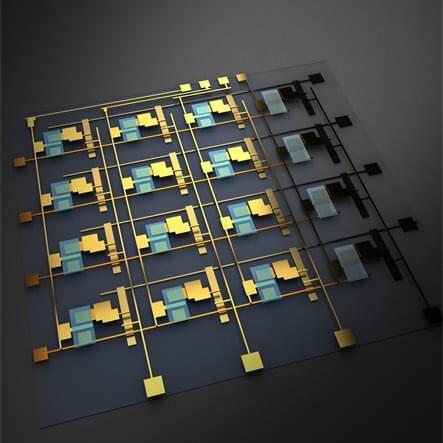The transformative changes brought by deep learning and artificial intelligence are accompanied by immense costs. For example, OpenAI’s ChatGPT algorithm costs at least $100,000 every day to operate. This could be reduced with accelerators, or computer hardware designed to efficiently perform the specific operations of deep learning. However, such a device is only viable if it can be integrated with mainstream silicon-based computing hardware on the material level.
This was preventing the implementation of one highly promising deep learning accelerator—arrays of electrochemical random-access memory, or ECRAM—until a research team at the University of Illinois Urbana-Champaign achieved the first material-level integration of ECRAMs onto silicon transistors. The researchers, led by graduate student Jinsong Cui and professor Qing Cao of the Department of Materials Science & Engineering, recently reported an ECRAM device designed and fabricated with materials that can be deposited directly onto silicon during fabrication in Nature Electronics, realizing the first practical ECRAM-based deep learning accelerator.
“Other ECRAM devices have been made with the many difficult-to-obtain properties needed for deep learning accelerators, but ours is the first to achieve all these properties and be integrated with silicon without compatibility issues,” Cao said. “This was the last major barrier to the technology’s widespread use.”
